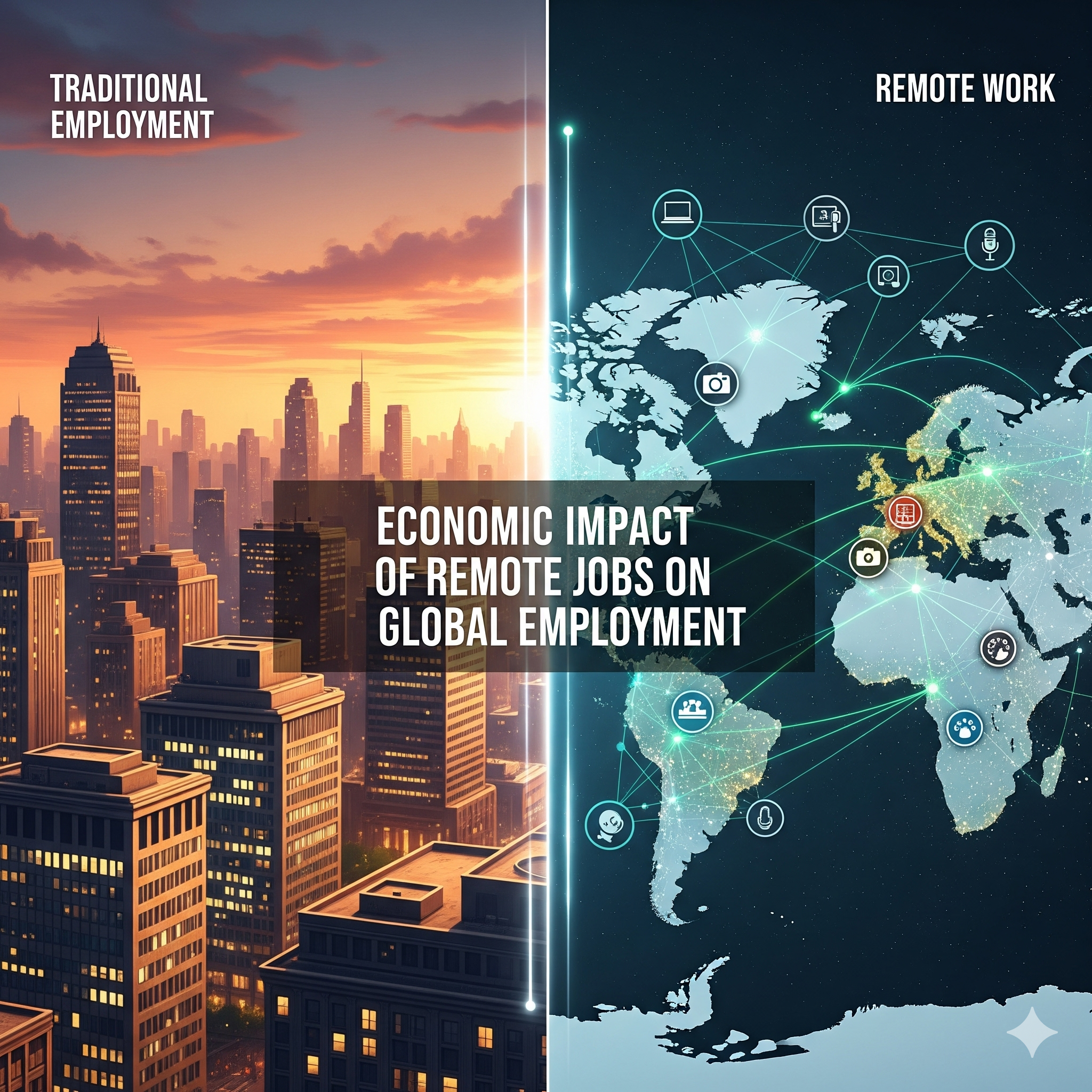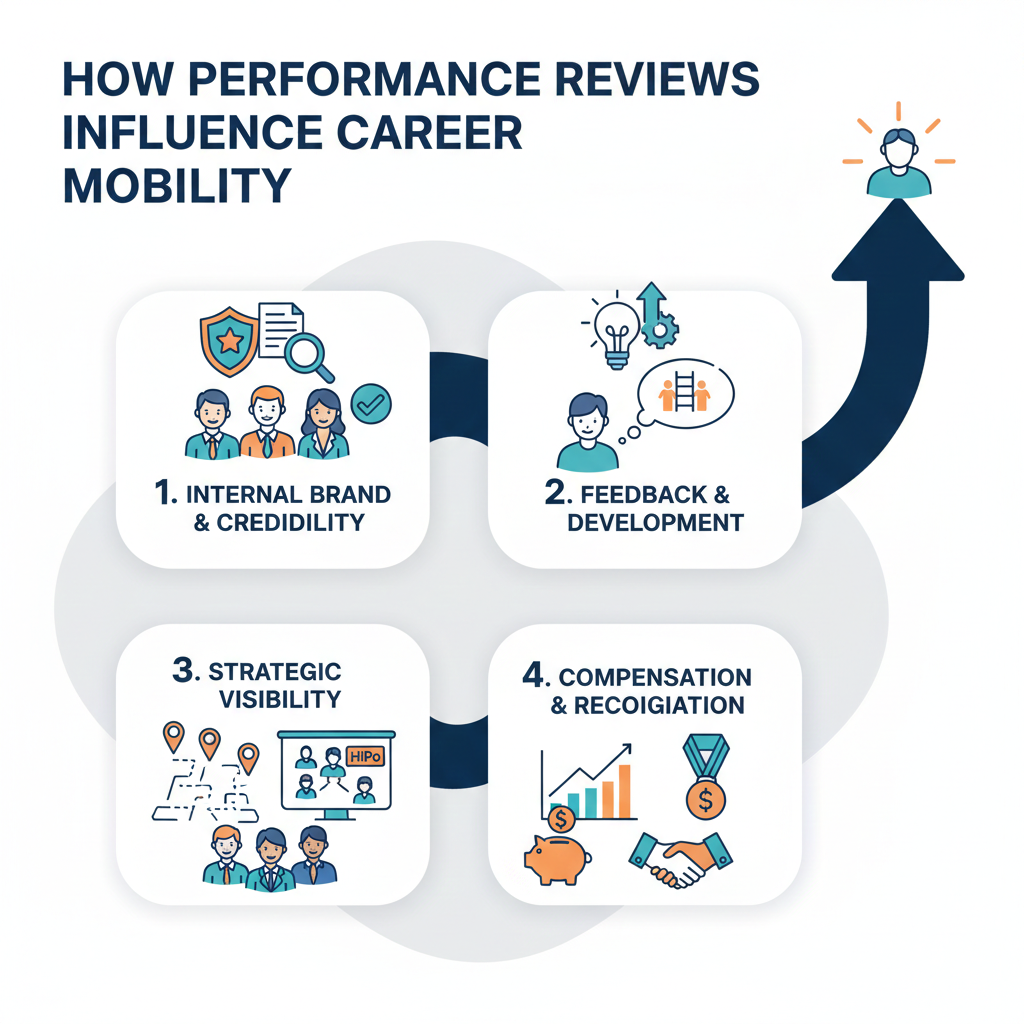Introduction:
The economic impact of remote jobs is transforming employment patterns across the world. Remote work is not just about convenience—it’s creating new job opportunities, improving incomes, and allowing people to work from anywhere. Businesses are tapping into global talent pools, while employees gain flexibility and access to higher-paying roles. This shift is influencing both local and global economies, redefining how companies operate and how workers plan their careers. As the economic impact of remote jobs continues to grow, it’s reshaping the way we work and live in an increasingly connected world.
The rise of remote jobs is reshaping global employment patterns, influencing job creation, talent distribution, and regional economies. From startups to multinational corporations, businesses are recognizing cost savings and productivity gains, while workers benefit from broader opportunities and geographical flexibility. This change is not without its challenges, but the overall economic impact is profound, influencing wages, job access, and market growth. In this article, we explore how remote jobs are transforming global employment and what this means for the future of work.
You can also read the summary of this article here.

Expanding Job Opportunities Across Borders
Remote jobs have significantly expanded access to employment across regions and industries. Before this shift, job seekers were limited to local opportunities or forced to relocate. Today, someone living in a small town can apply for roles in major tech hubs like San Francisco, London, or Sydney without changing their address.
For businesses, this means they can tap into talent pools that were previously unreachable. Organizations no longer need to prioritize location-based hiring, allowing them to onboard skilled professionals from diverse backgrounds. In fact, a study by Upwork found that 73% of hiring managers are more open to remote workers now than before the pandemic.
Moreover, remote jobs are creating new opportunities in developing regions. Many workers in lower-income countries now have access to better-paying roles in fields like digital marketing, software development, and customer support. This not only boosts local incomes but also contributes to global wealth distribution, helping bridge employment gaps.
Economic Benefits for Companies and Employees
The shift to remote work brings significant economic benefits to both employers and employees. Companies save on office rent, utilities, and overhead costs. According to Global Workplace Analytics, a typical employer can save about $11,000 per half-time remote worker per year. These savings can be reinvested into hiring, employee development, or technology upgrades.
Employees, on the other hand, benefit from reduced commuting expenses, greater flexibility, and improved work-life balance. Many workers report higher job satisfaction and increased productivity. Remote work enables employees to allocate more time to personal well-being or side projects, indirectly contributing to local economies as disposable income increases.
However, remote work isn’t just about saving money it’s also about accessing talent that fits specific needs. Businesses no longer have to compromise on skills or experience, allowing them to build more capable and diverse teams. Employees gain opportunities to upskill, collaborate globally, and explore career paths that weren’t available before.
Challenges and Disparities in Remote Employment
While the economic benefits are clear, remote jobs also expose challenges and inequalities that need attention. For instance, not all industries or roles can be performed remotely. Fields such as healthcare, manufacturing, and construction still rely on physical presence, limiting how far remote employment can expand.
Additionally, access to reliable internet, technology, and workspace infrastructure is uneven across regions. Many workers in rural or underserved areas face difficulties connecting to remote roles due to poor digital infrastructure. In some developing countries, internet penetration remains below global averages, restricting access to remote employment.
Another concern is wage disparity. While remote jobs provide access to higher-paying roles, not all employees are compensated equally. Employers might offer lower wages to workers in countries with a lower cost of living, reinforcing income inequality. Governments and organizations must develop frameworks that ensure fair compensation while promoting inclusive growth.
The Role of Technology in Enabling Remote Work
Technology serves as the backbone of the remote work revolution. Video conferencing platforms, cloud-based collaboration tools, and project management software have made it possible for teams to function seamlessly across time zones. Tools like Zoom, Microsoft Teams, and Slack are now integral to everyday workflows.
More advanced technologies like artificial intelligence (AI) and automation are also shaping remote jobs. AI-driven analytics help managers monitor productivity without micromanaging employees, while automated workflows reduce redundant tasks. These innovations increase efficiency and allow businesses to scale their operations without significant human resource constraints.
Moreover, learning platforms such as Coursera, Udemy, and LinkedIn Learning empower workers to upskill from anywhere. Access to continuous learning ensures that employees remain competitive, contributing to economic resilience even in uncertain times.
Long-Term Economic Implications
The long-term economic effects of remote jobs extend beyond immediate cost savings or job creation. They influence migration trends, urban planning, and even taxation policies. As more people embrace remote work, large metropolitan areas might see slower population growth, easing housing shortages and reducing environmental pressures.
Additionally, governments are considering new tax structures to accommodate a more distributed workforce. Some countries are offering digital nomad visas to attract remote workers, recognizing their contribution to local economies through consumption and service use.
On a global scale, remote jobs are fostering a more interconnected workforce. Countries that invest in digital infrastructure, skill development, and regulatory frameworks stand to benefit the most. Conversely, regions that lag in these areas may face employment stagnation and reduced investment.
Conclusion: A New Economic Landscape
Remote jobs are no longer a temporary trend; they are a fundamental shift in how work is structured and how economies grow. By breaking down geographical barriers, improving access to opportunities, and leveraging technology, remote work is reshaping global employment patterns in profound ways.
Yet, this transformation comes with its own set of challenges. Addressing disparities in internet access, fair compensation, and role availability will be key to ensuring that the benefits are widespread and inclusive. For businesses, the opportunity lies in tapping into global talent pools while embracing flexibility and innovation. For workers, remote jobs offer empowerment, growth, and a better work-life balance.
As we look ahead, the continued expansion of remote work promises to redefine labor markets and economic frameworks worldwide. Embracing this shift thoughtfully and strategically will be essential for building sustainable, equitable, and thriving economies in the years to come. Remote work isn’t just about where you work; it’s about how the world works together.
Find Your Dream Job Today Explore Endless Career Opportunities and Secure Your Next Role with best job Tool







Leave a Reply